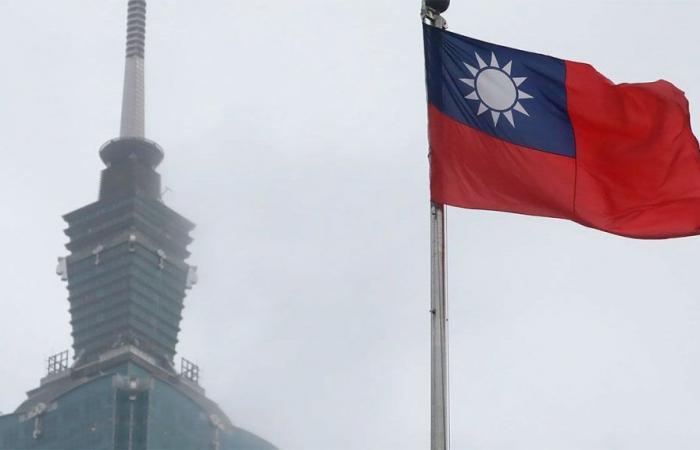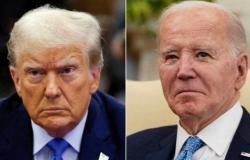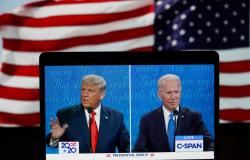The territory of Taiwan was ceded by China to Japan in 1895 under the Treaty of Shimonoseki, and remained under Japanese rule until 1945.
By Antonio Boggiano, in La Nación newspaper
In its surrender, Japan agreed not to retain sovereignty over Taiwan. In the 1951 Peace Treaty, concluded between the Allied Powers, that obligation of Japan was confirmed, although not with the Soviet Union, China. Through this treaty, Japan renounced all its rights over the island without specifying any recipient. After the Chinese Civil War, communist forces took over the territory, while the nationalist regime settled in Taiwan and Pescadores.
The United States and the United Kingdom then considered sovereignty over Taiwan to be uncertain and indeterminate. There was no demand for separation from Taiwan. Hence the difficulty in judging the situation of absence of claim. The lack of recognition of Taiwan as a separate independent State confirms that absence. In 1979, the United States recognized the People’s Republic of China as the sole and legitimate government of China. The 1972 US-China communication accepted that Taiwan was part of China. But this situation was changed in 1979. The United Kingdom admitted that Taiwan was a province of China. So too is the ruling in Reel v Holder, in Weetily Law Report, 1981, 1, 1226.
Apparently, Taiwan would be a non-state territorial entity capable of acting independently on the international stage. In 1984, China offered Taiwan full autonomy if it accepted a reunification plan, a proposal that was rejected. In December 1991, the first democratic elections were held. That rejection should be interpreted as a sign of independence. Or perhaps as a cause of future attacks. It is relevant to consider that when Taiwan, in 1999, requested access to the GATT, it requested entry as a “customs territory” of Taiwan, Penghse, Kinmen and Matsu, avoiding a claim to statehood. “Chinese Taipei” acceded to the World Trade Organization by approval of the Ministerial Conference of November 2001.
Legal considerations could tilt the judgment in China’s favor. However, it should not be forgotten and even less disregarded that China ceded Taiwan to Japan in 1895 and that it remained under the Japanese empire until 1945. There is one issue that must be highlighted, and that is that the matter is of such magnitude that the legal assessments even more founded would seem insufficient at the level of geopolitical reality to establish a solution. History and international relations play a relevant role. Hence it is necessary to take into account all the factors generally accepted for the recognition of States. And yet, by mere normative assessment, the issue does not seem capable of being resolved. China is pursuing it with military exercises consistent with its diplomatic claims.
The United States apparently wants Taiwan’s independence. Of course, the consequences of an armed conflict would be difficult to imagine. It might be thought that if China ceded Taiwan to Japan for at least fifty years, it could wait for the most opportune time to exercise the effective power of reconquest. It will also be relevant to consider the set of international relations. Dominant states, if I may excuse the expression and concept, can tilt legal opinions although not, in and of themselves, the equation of forces. The interests will be decisive. Although not only economical. Analysts of international relations will be able to put all the factors, even armed ones, into the game of imagination.
If China attempted to take Taiwan by force, it would face resistance from the attacked land and probably from the United States and allies competing in defense. The facts and not probably international law will determine whether it was an aggression or a reconquest, which can only be described as such in the case of victory. We cannot even judge the situations well, since we do not know if China has other conflict fronts and how serious they are. Obviously, in the event of war, questions pertaining to experts in armed conflicts, not laws, must enter into the analysis. Nor would important incidents of terrorism that are very difficult to appreciate in the war outcome be excluded. Taiwan is home to important technological companies, some almost exclusively producing, with applications to weapons equipped with the most advanced human and artificial intelligence.
There is still a lack of published studies on weapons directed by artificial intelligence and it would not be surprising if there are war secrets relatively revealed by the most modern espionage. The present war will require a science still arcane to ordinary minds. Perhaps today only a handful of people can access the most secret data of artificial intelligence. And perhaps we are all in the hands of that so-called elite that claims to extract gold from craters or stars without light. All imagination will perish in the attempt to distinguish myths from reality. Of reality probably ignored.
Going back to what we know, Taiwan was an observer at the 2009 World Health Assembly of the World Health Organization under the name “Chinese Taipei.” But its participation was blocked since 2016 due to pressure from China. And going back to the past of China’s cession to Japan, that cession replaced one sovereignty with another. Therefore, the assignment is a derivative title effective against the assignor. It is not an original title like the addition to The Island of Palms, a conflict between the United States and the Netherlands. The assignor transfers sovereignty with the scope of his own title. The successor of the assignor has the same title and right as the assignor. The acquisition of territory by the use of force is absolutely null and void, although on occasions the violation of this rule has been admitted in homage to reality. But such acquisitions require recognition. The use of force and conquest as territorial acquisition obviously exceed the purpose of these lines. Meanwhile, China continues with military exercises.






